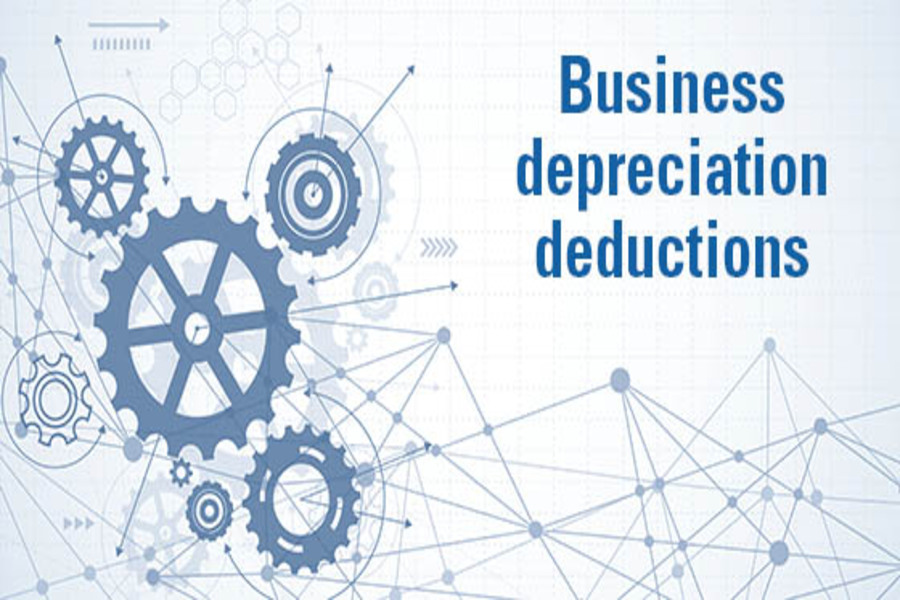In recent years, merger and acquisition activity has been strong in many industries. If your business is considering merging with or acquiring another business, it’s important to understand how the transaction will be taxed under current law. Stocks vs. assets From a tax standpoint, a transaction can basically be structured in two ways: 1. Stock (or ownership interest) sale. A buyer can directly purchase a seller’s ownership interest if the target business is operated as a C or S corporation, a partnership, or a limited liability company (LLC) that’s treated as a partnership for tax purposes. The now-permanent 21% corporate federal income tax rate under the Tax Cuts and Jobs Act (TCJA) makes buying the stock of a C corporation somewhat more attractive. Reasons: The corporation will pay less tax and...

If your investments have fluctuated wildly this year, you may have already recognized some significant gains and losses. But nothing is decided tax-wise until year-end when the final results of your trades will reveal your 2023 tax situation. Here’s what you need to know to avoid tax surprises. Tax-favored retirement accounts and taxable accounts If you’ve had wild swings in the value of investments held in a tax-favored 401(k), traditional IRA, Roth IRA or self-employed SEP account, there’s no current tax impact. While these changes affect your account value, they have no tax consequences until you finally start taking withdrawals. At that point, the size of your balance(s) will affect your tax bills. If you have investments in a Roth IRA, qualified withdrawals taken after age 59½...
Small businesses generally operate on principles of trust, particularly if several family members are involved. You might trust any employee to lock up the office at the end of the day or provide any colleague with administrative privileges to your website. After all, you know these people. But as businesses grow and hire new employees, it makes less sense to trust everyone implicitly. Even if your business remains small, some workers may be motivated to put their own financial interests ahead of your company’s. For this reason, businesses of every size need a conflict-of-interest policy that outlines ethical expectations and the consequences of violating them. An employer, not an employee, decision To understand the problem, it helps to look at a fictional example. Let’s say that Owen is...
Do you and your spouse together operate a profitable unincorporated small business? If so, you face some challenging tax issues. The partnership issue An unincorporated business with your spouse is classified as a partnership for federal income tax purposes, unless you can avoid that treatment. Otherwise, you must file an annual partnership return, on Form 1065. In addition, you and your spouse must be issued separate Schedule K-1s, which allocate the partnership’s taxable income, deductions and credits between the two of you. This is only the beginning of the unwelcome tax compliance tasks. The self-employment (SE) tax problem The SE tax is how the government collects Social Security and Medicare taxes from self-employed individuals. For 2023, the SE tax consists of 12.4% Social Security tax on the first $160,200...
The holidays are just around the corner. Many people may want to make gifts of cash or stock to their loved ones. By properly using the annual exclusion, gifts to family members and loved ones can reduce the size of your taxable estate, within generous limits, without triggering any estate or gift tax. The exclusion amount for 2023 is $17,000. The exclusion covers gifts you make to each recipient each year. Therefore, a taxpayer with three children can transfer $51,000 to the children this year free of federal gift taxes. If the only gifts made during a year are excluded in this fashion, there’s no need to file a federal gift tax return. If annual gifts exceed $17,000, the exclusion covers the first $17,000 per recipient,...
As reported via IR-2023-202 on 11/1/2023 IRS opens free Energy Credit Online tool for sellers of clean vehicles to register for time-of-sale reporting and dealer advance payments for the Clean Vehicle Credit The Internal Revenue Service announced today that sellers of clean vehicles can now register using the new IRS Energy Credits Online tool, available free from the IRS. Known as IRS Energy Credits Online or IRS ECO, this free electronic service is secure, accurate and requires no special software. Though available to any business of any size, IRS Energy Credit Online may be especially helpful to any small business that currently sells clean vehicles. The IRS’s new Energy Credits Online tool will allow dealers and sellers of clean vehicles to complete the entire process online and receive advance...
Are employees at your business traveling and frustrated about documenting expenses? Or perhaps you’re annoyed at the time and energy that goes into reviewing business travel expenses. There may be a way to simplify the reimbursement of these expenses. In Notice 2023-68, the IRS announced the fiscal 2024 special “per diem” rates that became effective October 1, 2023. Taxpayers can use these rates to substantiate the amount of expenses for lodging, meals and incidentals when traveling away from home. (Taxpayers in the transportation industry can use a special transportation industry rate.) Basics of the method A simplified alternative to tracking actual business travel expenses is to use the “high-low” per diem method. This method provides fixed travel per diems. The amounts, provided by the IRS, vary from locality to...
The Tax Cuts and Jobs Act liberalized the rules for depreciating business assets. However, the amounts change every year due to inflation adjustments. And due to high inflation, the adjustments for 2023 were big. Here are the numbers that small business owners need to know. §179 deductions For qualifying assets placed in service in tax years beginning in 2023, the maximum §179 deduction is $1.16 million. But if your business puts in service more than $2.89 million of qualified assets, the maximum §179 deduction begins to be phased out. Eligible assets include depreciable personal property such as equipment, computer hardware and peripherals, vehicles and commercially available software. §179 deductions can also be claimed for real estate qualified improvement property (QIP), up to the maximum allowance of $1.16 million. QIP...
Reasonable compensation is an issue that comes into play in divorce, shareholder disputes and tax cases. It’s also a common financial statement adjustment that valuators make when valuing a business. Although experts are often hired to make the calculations, business owners and attorneys should understand how they do it. Multiple factors Valuators weigh a variety of factors when determining reasonable compensation for a specific business owner or executive, including: Role in the business. Many companies employ multiple executives, but they don’t all fill the same roles. Some are sales rainmakers, while others drive strategic direction or manage the day-to-day operations of the business. A valuator considers the experience and qualifications necessary to fill the individual’s specific job, as opposed to the qualifications the individual currently in the job...
Many homeowners across the country have seen their home values increase in recent years. According to the National Association of Realtors, the median price of existing homes sold in July of 2023 rose 1.9% over July of 2022 after a couple years of much higher increases. The median home price was $467,500 in the Northeast, $304,600 in the Midwest, $366,200 in the South and $610,500 in the West. Be aware of the tax implications if you’re selling your home or you sold one in 2023. You may owe capital gains tax and net investment income tax (NIIT). You can exclude a large chunk If you’re selling your principal residence, and meet certain requirements, you can exclude from tax up to $250,000 ($500,000 for joint filers) of gain. To qualify...
- 1
- 2
- 3
- 4
- 5
- 6
- 7
- 8
- 9
- 10
- 11
- 12
- 13
- 14
- 15
- 16
- 17
- 18
- 19
- 20
- 21
- 22
- 23
- 24
- 25
- 26
- 27
- 28
- 29
- 30
- 31
- 32
- 33
- 34
- 35
- 36
- 37
- 38
- 39
- 40
- 41
- 42
- 43
- 44
- 45
- 46
- 47
- 48
- 49
- 50
- 51
- 52
- 53
- 54
- 55
- 56
- 57
- 58
- 59
- 60
- 61
- 62
- 63
- 64
- 65
- 66
- 67
- 68
- 69
- 70
- 71
- 72
- 73
- 74
- 75
- 76
- 77
- 78
- 79
- 80
- 81
- 82
- 83
- 84
- 85
- 86
- 87
- 88
- 89
- 90
- 91
- 92
- 93
- 94
- 95
- 96
- 97
- 98
- 99
- 100
- 101
- 102
- 103
- 104
- 105
- 106
- 107
- 108
- 109
- 110
- 111
- 112
- 113
- 114
- 115
- 116
- 117
- 118
- 119
- 120
- 121
- 122
- 123
- 124
- 125
- 126
- 127
- 128
- 129
- 130
- 131
- 132
- 133
- 134
- 135
- 136
- 137
- 138
- 139
- 140
- 141
- 142
- 143
- 144
- 145
- 146
- 147
- 148
- 149
- 150
- 151











